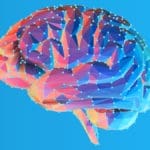Treatment for mental health disorders including depression can often come with acute side effects. If you’ve thought about transcranial magnetic stimulation, you’ve likely wondered, “Can TMS make anxiety worse?” While some patients have reported higher levels of anxiety after TMS, the treatment has also been used in some cases to treat generalized anxiety disorder. Research shows that TMS’s effects on anxiety vary based on the specifics of the patient’s condition, the frequency of magnetic pulses used, and other parameters.
How TMS Treatment Works
Since the 1980s, TMS treatments have been used to treat depression and anxiety by enhancing activity in areas of the brain, usually the dorsolateral prefrontal cortex (DLPFC). During a TMS session, a doctor uses a magnetic coil to send alternating pulses to neurons to stimulate brain activity. A noninvasive and nonconvulsive alternative to electroconvulsive therapy for medication-resistant depression, TMS is performed usually in 20 minute sessions, where patients remain awake and are able to return to work or their regular routines immediately following the sessions.
Can TMS Make Anxiety Worse? What the Studies Show
Some studies have shown that when used for depression, TMS causes increased anxiety. A 2011 trial showed that when administered to individuals with panic disorder, repetitive transcranial magnetic stimulation (rTMS) caused higher anxiety levels.
However, there is not evidence that TMS makes anxiety worse for most patients. In our experience of treating hundreds of patients at Mid City TMS, only a very small percentage of patients have reported worsened anxiety. The majority of patients we have treated with TMS report feeling calmer, with an enhanced ability to cope with stressors and reduced worry.
The Mayo Clinic does not list anxiety as a side effect of TMS and notes that only in extremely rare cases does TMS cause related conditions like mania or seizures. Temporary side effects of TMS include headaches, lightheadedness, and skin tingling, but these generally decrease after a few sessions.
If you are suffering from more intense anxiety after beginning TMS treatments, speak to your doctor. Your doctor may be able to adjust your sessions to reduce side effects.
TMS Therapy for Anxiety
Though research is limited, doctors have seen success using TMS to treat anxiety. Studies have shown significant benefit for individuals who have been diagnosed with “anxious depression” or depression and comorbid anxiety. In these types of cases, both depression and anxiety have been reduced through TMS.
It’s likely that TMS is effective in some cases of anxiety because depression and anxiety affect similar areas of the brains. Both depression and anxiety can be caused by differences in activity between the brain’s hemispheres, especially in the DLPFC, where TMS treatments are usually focused. Transcranial magnetic stimulation improves brain functionality and increases the prefrontal cortex’s ability to regulate emotions.
In bilateral TMS treatments, magnetic fields are used to raise activity in the left DLPFC and reduce activity in the right DLPFC. Because anxiety can be fueled by hyperactivity in the right brain, lowering activity levels there can help relieve symptoms of anxiety.
Contact Mid City TMS for a Consultation Today
If you’re suffering from depression or anxiety and want to learn more about how TMS might be able to help you, contact Mid City TMS today. We are the leading TMS clinic in New York City. Dr. Bryan Bruno has helped hundreds of patients with the treatment of mood disorders and mental health issues.
Dr. Bruno and his team of experts will work with you to provide a course of treatment designed to help you feel better. For a comprehensive consultation, call us at 212-517-1867 or contact us through our website.



